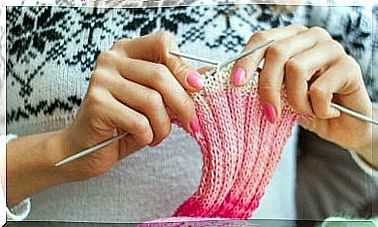Accepting Injustice Because You Are Afraid Of Conflict

Our daily lives are full of situations that can lead to conflict. You are standing in line at the cash register and suddenly someone is pushing in front of you. Or the cashier tries to charge more for something you know costs less. Or your boss gives you an impossible task because he woke up in a bad mood. Don’t be afraid of conflict, and confront if something feels like injustice.
We all have the freedom to choose which of these conflicts we respond to. Sometimes we fight “an eye for an eye, a tooth for a tooth” because it seems fair or reasonable. Other times we let it go because it doesn’t seem worth wasting energy on something so unimportant.
However, there are people who cannot make that choice. Or rather, they choose in advance to refuse any situation that involves confronting them. In this way, they not only escape discussions, but also make a claim, demand or end the behavior that causes direct conflict. It’s more than a fear. What they experience is a sense of helplessness beyond all reason.
Sometimes they are not even aware of their fear. They just say that they prefer peace, and don’t like arguing. For example, if they work in a group and some team members try less hard, these people will take over their jobs to avoid conflict. They will do work that is not theirs, anything to avoid getting into a fight.
The strategy to avoid conflict
Avoiding conflict is a valid strategy as long as you avoid a greater evil. If you know that the other person is absolutely uncompromising, then there’s no point in arguing about it. Or if there’s a rule you don’t like, but you’ve been warned you can’t change it, it’s reasonable to let it go.
However, there are other times when something more important is at stake. Your rights, for example. Or your dignity, or the respect you deserve. In those cases, you lose much more by not entering into a conflict than by avoiding it.
You consciously know that you are being wronged, that something illegal is being done, or that a degrading act is being accepted. Yet some people remain silent and try to carry on as if nothing happened.
The consequences are serious, not only because a hurtful act has taken place, but also because it affects our emotional balance. No matter how much a person tries to follow his own path, without paying attention to the injustice done to him, something in him will rebel.
This can lead to frustration, intolerance, anxiety or perhaps even physical illness.
On the other hand, this attitude creates strange social relationships. You let it go today, but it won’t stop tomorrow. The unsub will not stop because no one resists.
On the contrary, he will feel that he has complete freedom to continue doing business as he is used to. Avoiding conflicts means not resolving them. It means you don’t even deal with it.
Learned Avoidance
Avoiding, dodging, turning around… This is behavior that in many cases has been taught and imprinted on us. It makes us mistakenly believe that restraint, oppression or silence are correct and even desirable solutions.
But a child is not born to suppress itself. A baby does everything except suppress itself. It is the environment that teaches him to do this, because in this way the environment ultimately exerts more control over the child.

Those who avoid conflict will not get peace in return. What happens is that you ‘hold’ and ‘collect’ the conflict. This usually results in the bucket filling up until the last drop runs over the edge.
Then the silent person explodes and the people around him are shocked. Sometimes, after prolonged restraint, these explosions have very serious consequences.
Silence before injustice only destroys your self-esteem in the first place . Without realizing it you are feeding the idea that you are helpless. And every time something happens, you feel less capable.
You also cause damage to your body. Those who hold back too much are likely to develop stomach problems, ulcers, muscle problems, and autoimmune disorders.
Some conflicts should never be avoided. It is also not healthy to go to the other extreme and confront every little problem. There are ways to sort, process and resolve conflicts. Just as you learn to avoid them, you can also learn to manage them.
In fact, conflict is positive because it allows you to grow, mature and gain independence. Moreover, those who confront injustice are usually content and happy people.









